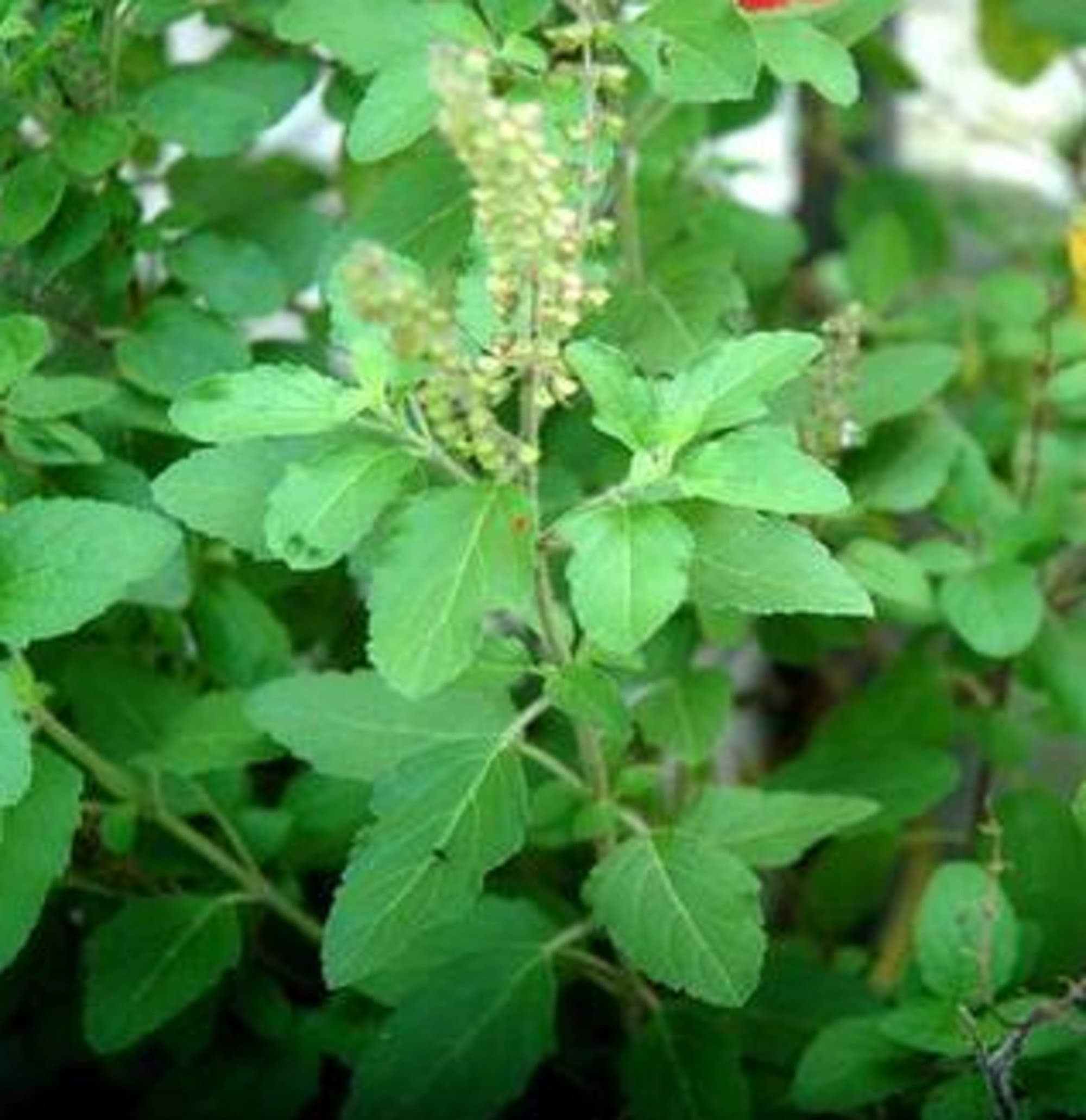Holy Basil, also known as Tulsi, is a sacred herb in India with a long history of use in Ayurvedic medicine. It is considered one of the most important herbs in the traditional Indian system of medicine due to its wide range of therapeutic properties.

The plant is a member of the mint family and is native to the Indian subcontinent. It has a strong, pleasant aroma and is characterized by its green leaves, purple stems, and white flowers. Holy Basil is widely grown throughout India and is often found in Hindu temples and homes as a symbol of spirituality.
Holy Basil is revered in India as a powerful adaptogen, which is a substance that helps the body adapt to stress and promote balance. It is believed to have a calming effect on the nervous system and to help alleviate anxiety and depression. It is also used to improve memory and concentration, and to enhance overall mental function.
In Ayurvedic medicine, Holy Basil is used to treat a wide range of health conditions, including respiratory disorders, digestive problems, skin conditions, and infections. It is also used as a general tonic to promote overall health and well-being.
One of the most impressive benefits of Holy Basil is its ability to fight inflammation. Inflammation is a natural process that occurs in the body in response to injury or infection, but chronic inflammation can lead to a range of health problems, including heart disease, cancer, and autoimmune disorders. Holy Basil contains compounds that have been shown to reduce inflammation and protect against its harmful effects.
Holy Basil is also a powerful antioxidant. Antioxidants are substances that protect the body from damage caused by free radicals, which are harmful molecules that can contribute to aging and disease. Holy Basil contains a variety of antioxidant compounds, including flavonoids, tannins, and phenolic acids, that have been shown to protect against oxidative stress and prevent cellular damage.
Research has also shown that Holy Basil may have anti-cancer properties. Studies have found that the herb can help inhibit the growth of cancer cells and prevent the spread of tumors. It is believed that the antioxidant and anti-inflammatory properties of Holy Basil may be responsible for its cancer-fighting effects.
In addition to its physical health benefits, Holy Basil is also believed to have spiritual and emotional benefits. In Hinduism, the plant is considered sacred and is often used in religious rituals and ceremonies. It is believed to have a purifying effect on the mind and body and to promote spiritual awareness and enlightenment.
Holy Basil is available in a variety of forms, including teas, tinctures, and supplements. It is generally considered safe for most people when used in moderation, but it may interact with certain medications or have adverse effects in some individuals.
In conclusion, Holy Basil is a powerful herb with a long history of use in traditional Indian medicine. It is revered for its ability to promote overall health and well-being, fight inflammation and oxidative stress, and even fight cancer. It is also believed to have spiritual and emotional benefits and is considered sacred in Hinduism. Whether used for its physical or spiritual properties, Holy Basil is a valuable and versatile herb that deserves further exploration and study.
